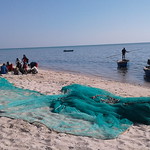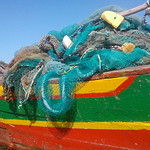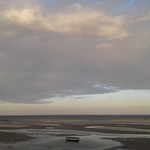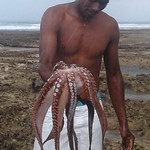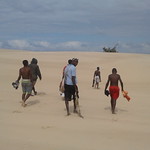The Bazaruto Dugong protection project (MZ4).
Mozambique: Bazaruto archipelago National Park.
$90,887
This project seeks to effectively contribute towards the improvement of the conservation status of dugongs in and around the Bazaruto archipelago by mitigating human-induced threats and applying a long-term approach to responsible fisheries.
MZ4 will create and maintain a Dugong Protection Unit (DPU) in order to build capacity and coach local authorities, tourism operators and community fishing associations (CCPs) to carry out coordinated sustainable dugong protection. The DPU will: 1) strengthen local structures to secure the sustainability of protection measures for dugongs and their habitats; 2) coach members to implement appropriate actions for reporting procedures of dugong sightings, gill net sightings and dugong mortality; 3) set clear and achievable reporting and procedure guidelines; and 4) develop best-practice guidelines for relevant legislation and fisheries policy instruments.
The project will also facilitate teacher training workshops which aim to enhance the delivery of a marine-themed environmental education syllabus (EES) in local schools in order to foster greater awareness of threatened marine species and habitats. The EWT has developed a set of 21 interactive lesson plans, and proposes that any existing educational content developed by MZ3 be incorporated into the EES.
Furthermore, MZ4 will implement a Sustainable Seafood Initiative (SSI) which facilitates the transition from netting to hand-line fisheries in order to reduce the use of seine nets within the Bazaruto Archipelago National Park (BANP).
The project will enlist the assistance of a social development specialist (Blue Ventures) to analyse data from a livelihoods survey in order to identify further feasible, sustainable alternative livelihood opportunities for the BANP communities.
Deliverables
1. Provide an alternative source of income for local island residents; alleviate poverty by identifying further alternative income-generating activities for the Park’s communities; and increase fisheries production to assist the achievement of local economic and social development.
2. Build capacity amongst local government departments.
3. Develop proficiency in teachers and augment their awareness of marine ecosystems, dugongs and seagrass.
4. Enhance children’s knowledge of marine ecosystems, dugongs and seagrass and instil an understanding of sustainable marine resource use.
5. Reduce netting activity in specific zones seasonally.
